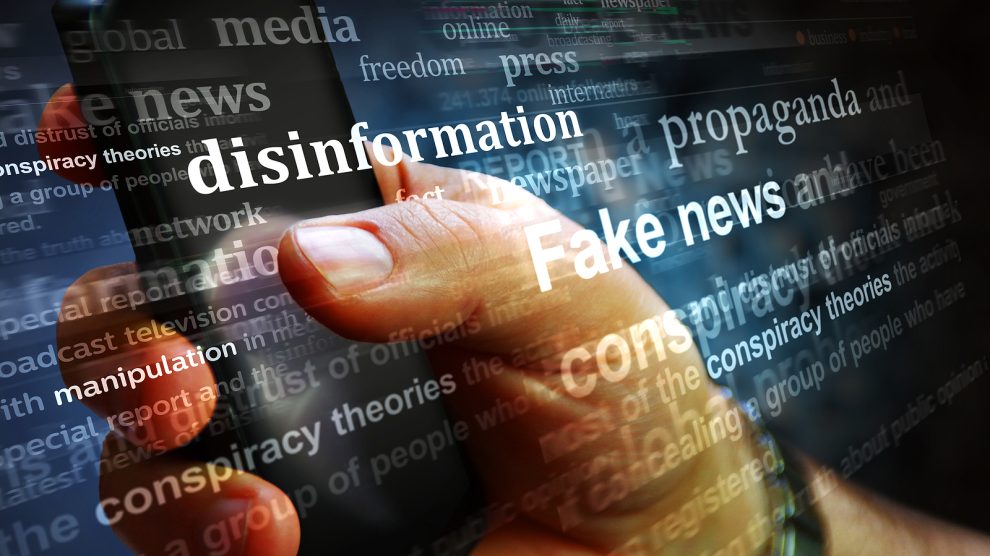Countering disinformation in the Black Sea region requires rethinking both the tools and the approach used.
Disinformation plays a significant role in the phenomenon of democratic backsliding all through the Euro-Atlantic space, but it’s particularly pressing in the countries of the Black Sea region, which are more predisposed to hybrid attacks from Russia.
Although the narratives we see being spread today are new in messaging, the challenge of disinformation is not, in and of itself, new. This is therefore a good moment to look back and see how we have tried to tackle it in the past, and extract valuable lessons to be used in the fight against disinformation in the region today.
- Maia Sandu’s next battle: Reforming Moldova’s justice system
- Education key to boosting growth in emerging Europe and Central Asia
- Unity and collaboration, not division and stereotype
Looking at the tools at our disposal to combat disinformation, we are broadly looking at four different types: Governmental action; Independent fact-checking organisations; Moderation of social media platforms; Promoting media literacy, digital literacy and critical thinking skills for the general population.
Based on the experience of the past decade, we see that some of these tools are not particularly efficient.
Any government taking a leading role in combating disinformation by establishing strategic communication groups (to decide which information is accurate and which is false news) is a priori problematic.
No advocate of democracy would support granting ruling political parties such authority, especially as it would likely be ineffective in actually combating disinformation in a region where public trust in authorities is already very low.
The law of large numbers
Independent fact-checking organisations initially appeared to be very promising, experiencing incredible growth between 2016-20 However, by 2024 growth not only slowed, but started regressing, with many fact-checking organisations being closed or switching their activities.
This can be attributed to several weaknesses. Firstly, the statistical inevitability of error, as the law of large numbers dictates. Despite correctly fact-checking thousands of stories, the law of large numbers dictates that mistakes will eventually occur. In a field where reputation is everything, a single error can undo all their track record.
Secondly, fact-checking organisations may suffer from the same phenomenon of polarisation seen in television news outlets. Fact-checkers can be associated with particular political stances or ideologies, leading to their findings being rejected out of hand by audiences whose views differ from their perceived ideology of the fact-checker.
Ultimately, eight years after their rapid growth, few would argue that we are facing less disinformation today than in the past.
Social media and media literacy
Social media platforms have already implemented self-moderation as a strategy to combat disinformation. However, due to the sheer amount of content posted daily, this approach is not enough to curb the wave of false information on its own.
Instead, self-moderation serves as a support tool, working to complement other types of actions meant to counter disinformation.
Promoting media literacy, digital literacy and critical thinking skills holds great potential in combating disinformation, as there is nothing more resilient in the fight against disinformation than an educated population.
However, many policymakers and stakeholders unrealistically expect rapid results when this approach is inherently long-term, targeting generational change as opposed to producing quick results within months.
A change of approach
In addition to examining the tools used to combat disinformation, we should also look at the approaches used, especially in the countries of the Black Sea region, where all too often the approach is to ban the talking points of Russian disinformation, rather than engage with them.
While this is justified in some instances, in others it means shutting down discussion on legitimate grievances. As advocates for liberal democracy, we must understand that effective propaganda contains fragments of truth, and simply labeling it Russian disinformation will not make such grievances disappear.
A telling example of this was in the run up of the Moldovan Presidential elections and the referendum on EU membership. A Russian-affiliated website, Nuacum.eu (Notnow.eu), encouraged Moldovans to vote against EU membership by claiming it was premature and would impose significant costs on the population, particularly for entrepreneurs and farmers due to high costs of compliance with EU standards.
The Moldovan authorities decided to ban the website, without addressing the concerns raised by the outlet. Interestingly, a study carried out by Partnerships for New Economy (PNE), a Moldovan think tank, discovered that the main concern of Moldovan entrepreneurs regarding EU membership, cited by 50.2 per cent of entrepreneurs who took part in the study, was the cost of compliance with EU standards.
Given the narrow margin by which the EU membership referendum passed, we can only ponder what the result would have been had pro-European forces decided to engage with the concerns of those sceptical of EU membership and provided a plan of action instead.
In conclusion, countering disinformation in the Black Sea region requires rethinking both the tools and the approach used.
The way forward is to focus on media literacy, critical thinking, and digital literacy. This is a long-term project which necessitates time and sustained support, as quick fixes cannot eliminate the root causes.
By addressing and engaging with legitimate concerns and focusing on education, we can counter disinformation much more effectively while promoting democratic values.
At Emerging Europe, we use an integrated approach centred around market intelligence to help organisations understand trends and strategically position themselves for success.
Learn how our solutions can help you thrive in the region:
Company and Services Overview | Strategic Advantage.

